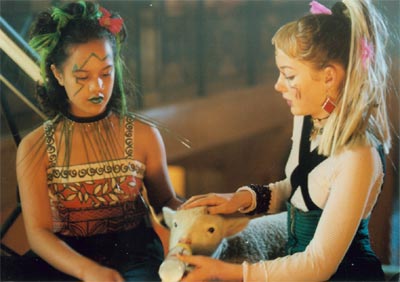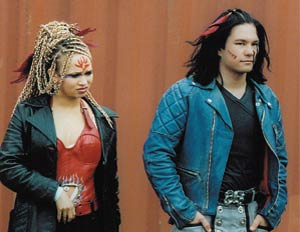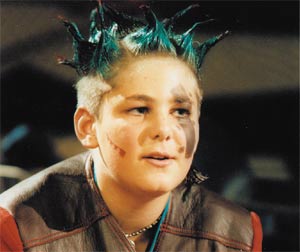 You wake up in the middle of the night with an aching calf. It’s dull, throbbing, cramped—growing pains.
You wake up in the middle of the night with an aching calf. It’s dull, throbbing, cramped—growing pains.
It’s hard to imagine that you can actually feel your body grow, that you’ll awake some morning to a sensation like the low creaking sound of corn pushing up in its stalks. But the fact remains. You are feeling a special sort of pain, one your parents try hard to remember and empathise with; but it is a pain that they have left behind, and that you will one day only dimly recall, more intellectually than an actual memory.
What are growing pains?
Growing pains strike one in four children during two periods in their childhood. Early growing pains usually happen to 3-5 year old children. And then the pains come again to 8-12 year olds.
There is no strong evidence to show that bone growth causes pain. Growing pains tend to be centred on muscular areas, such as the front of the thighs, or the calves, rather than the joints.
The most likely cause of growing pains, therefore, is not actual growth, but simply taxing your body. Running, jumping and playing as an active child tire out the muscles, and, after a particularly active day, the muscles apparently bite back.
Perhaps the muscles of a kid in these two age groups are particularly susceptible to pain as the muscles are being formed. A 3-5 year old is forming many muscles for the first time ever, muscles that were not necessary as a toddler, but become important for more complicated activities than….uh, toddling. Likewise, an 8-12 year old is starting to develop an adult’s body, and more mature, permanent muscle groups are coming into place.
So, rather than pains caused by literal growth, growing pains are probably the tangible ache of growing up. The difference is subtle, but there is a distinction.
 Symptoms
Symptoms
Growing pains usually strike after a day of heavy activity, most often in the late afternoon or early evening, before bed. However, growing pains sometimes rear up in the middle of the night, with enough intensity to awaken the poor victim.
The degree of pain really varies. Many children probably experience growing pains so light that they are hardly perceptible, certainly not worthy of comment or diagnosis as growing pains. To other kids, they are an agonizing shrieking pain, which can warrant a trip to the hospital (although such a trip does more to assuage parents’ fears than to help with the pain).
Growing pains are unlikely to be a daily phenomenon. Usually they occur sporadically, perhaps once during a week.
Unlike someone with an injury or a disease, kids experiencing growing pains respond positively to physical contact, feeling better when they are held or massaged. As mentioned above, growing pains are muscular pains. Any pains in the joints, swelling, or discolouration of the skin are probably not growing pains, and could be a symptom of a much more serious problem.
Treatment
Growing pains, while upsetting, and sometimes even agonizingly painful, are quite harmless. Whereas pain is usually an indication that something is wrong in the body, growing pains are more of an indication that you are getting out there and living. They are akin to the sore muscles that you might expect (and indeed even relish) after a heavy workout; a pain that shows that something has been accomplished.
Fortunately, these pains do not usually last long, and are often gone entirely in the morning. (And unfortunately, this often means that parents have a hard time believing that the pains are real, rather than a scheme for more attention or a later bed-time.)
 While the pains last though, there are some easy ways to lessen the intensity. Massaging, stretching and heating the affected area are the most effective way to ease the pain, as they work directly with the hurting muscle. For those who prefer chemical solutions over physical remedies, acetaminophen and ibuprofen (found in Tylenol and Advil, respectively) are common over-the-counter pain relievers that have proven effective—and are probably already in your medicine cabinet.
While the pains last though, there are some easy ways to lessen the intensity. Massaging, stretching and heating the affected area are the most effective way to ease the pain, as they work directly with the hurting muscle. For those who prefer chemical solutions over physical remedies, acetaminophen and ibuprofen (found in Tylenol and Advil, respectively) are common over-the-counter pain relievers that have proven effective—and are probably already in your medicine cabinet.
You could expect to wait half an hour for the medicine to set in, but the placebo effect is marvellously instantaneous.
As with any ailment, it’s best to consult a doctor if you are at all unsure of your tolerance for these medications, or of your self-diagnosis.
The Abstract
Of course physical growing pains are not the only sort that you’re bound to experience. Growing up is a strange, disorienting experience. It is a life constantly in flux, as your body, your mind, your emotions, your relationships, and your philosophy are constantly changing shape. This can be an incredibly painful experience.
Is it easier to grow up with adults at your side, supporting you as you change, and giving advice from their recollections of childhood? Or is this frustrating?
Often it feels like parents are speaking from a time so distant that they can’t possibly remember how it felt to be your age. Plus, for all of their claims, they have never experienced everything you are experiencing. How would they know what it is to grow up in an age of high-tech media, with a world so strangely connected by the internet?
For all of their efforts, adults cannot ever completely understand what it is to experience growing pains, of any sort. Is it better to have them along for the ride anyway?
The kids in the Tribe get to experience first hand what it is without adults along for company. They are forced to grow up faster. And sometimes it seems like the aches and pains of aging are appropriately intensified.

